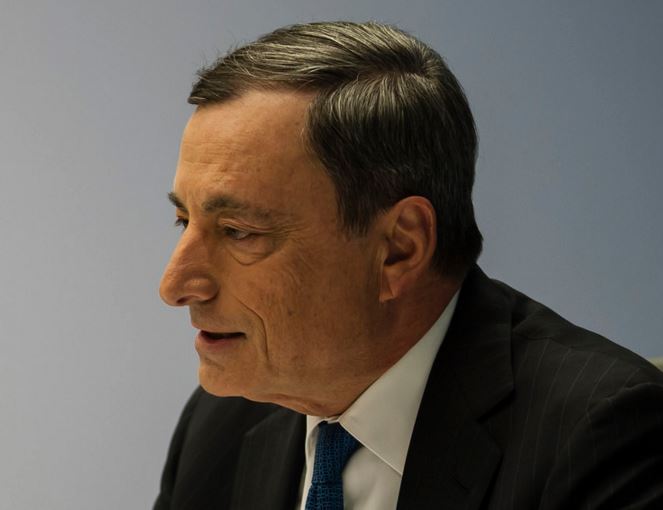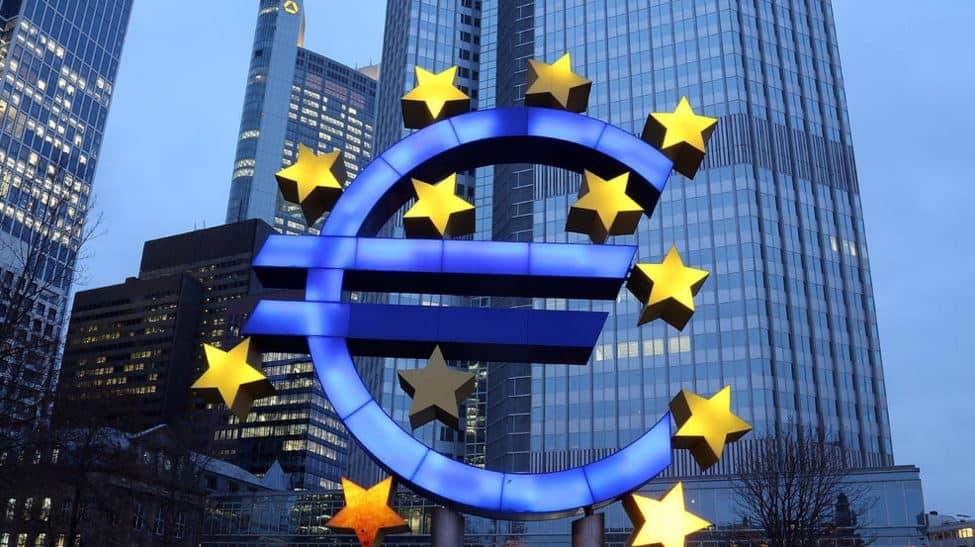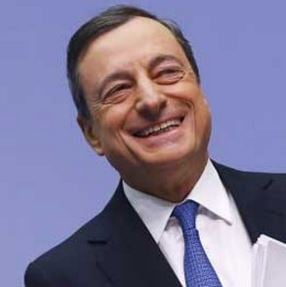The ECB (European Central Bank) failed to live up to high market expectations, despite rolling out more stimulus, leaving Germany’s DAX to take its largest drop – (minus) -3.6% – since August 24th, 2015. On Thursday, the central bank cut its deposit rate by 10 basis points to (minus) -0.30%, and pledged to extend its asset purchase programme by 6 months to at least the end of March 2017, in its attempt to tackle weak growth and lift inflation.
The interest rate on the main refinancing operations and on the marginal lending facility will remain unchanged at 0.05% and 0.30% respectively.
Markets, which had been expecting more aggressive market measures, were not impressed with ECB President Mario Draghi’s dovish comments.
 The main problem with too much sweet-talking is that most people are likely to be disappointed on the big day. There was major disappointment on Thursday after Mario Draghi’s announcement. (Image: ECB)
The main problem with too much sweet-talking is that most people are likely to be disappointed on the big day. There was major disappointment on Thursday after Mario Draghi’s announcement. (Image: ECB)
There had been hopes that the ECB would include a bigger cut in the deposit rate, and perhaps step up the monthly asset purchase pace, which still stands at €60 billion a month.
Too much sweet talking beforehand
NYSE POST quoted Norihiro Fujito, a senior investment strategist at Mitsubishi UFJ Morgan Stanley Securities, who said:
“It’s like doing so much sweet talking before your marriage that you set it up to be a big disappointment.”
In an interview with the Financial Times, ING economist Carsten Brzeski said:
“For the first time in a long while, ECB president Mario Draghi underachieved and delivered less than the market consensus had expected.”
“Looking at the ECB’s macro assessment, it looks as if almost unchanged growth and inflation forecasts, as well as a positive assessment of the impact from QE up to now, laid the grounds for the ECB’s rather reserved policy reaction.”
 The European Central Bank, based in Frankfurt, Germany, aims to raise the annual inflation rate to 2% and boost the Eurozone’s economy.
The European Central Bank, based in Frankfurt, Germany, aims to raise the annual inflation rate to 2% and boost the Eurozone’s economy.
The central bank’s move, which caught investors off their guard and forced them to change positions in the majority of asset classes, caused the euro to appreciate.
Even so, the euro’s strong gain on Thursday pushed the dollar index back to a one-month low of 97.591, from 100.510 midweek, which had been a 12.5-year peak.
The euro climbed from $1.0939 to $1.0940 after rising by 3% on the news. However, those gains were not extended.
ECB’s covert monetary financing
The ECB introduced on Thursday, by a significant majority, a new twist to its stimulus programme. From now on, the principal repayment on government bonds bought under quantitative easing (QE) will be used to purchase more bonds.
ECB Board Member Yves Mersch called this reinvestment position “the most important” element of Thursday’s announcement.
Mr. Draghi tried his best to have it both ways. He described the move as an extension of the quantitative easing timeline, which is true. However, he denied that in doing so, the central bank was giving the green light to a type of ‘monetary financing’, which it is.
That practice, which under EU treaty rules is strictly forbidden, refers to the funding of government expenditure directly through the creation of money. Mr. Draghi said “I can exclude completely any monetary financing.”
The purchasing of more than €1 trillion in government bonds, plus a further €360 billion with these new measures, is not, strictly-speaking direct financing.
The ECB stressed that no monetary financing was taking place here because the sovereign bonds that are being purchased in huge quantities by national central banks are bought on the secondary markets, not the primary market.
That is true – but the effect is the same. In effect, nearly €1.5 trillion of European local, regional and national bonds have been sucked out of the market and added to the central bank balance sheet for an unspecified period.
Jean-Michel Paul, founder and chief executive of Acheron Capital in London, explained it like this in Bloomberg:
“The argument that this doesn’t constitute monetary financing ignores the fungible nature of government bonds in the securities market. If a national central bank acquires a quarter of its country’s national debt, institutional market participants, which are often required to hold such bonds, will rush to buy the country’s new debt issues, implicitly financing not only this year’s fiscal deficit, but much more.”
“Further, if a national central bank states that it will keep this money invested in government bonds in the future, as has just been done by the ECB under its new Principal Reinvestment policy, the debt purchased has effectively been monetized for the foreseeable future, which is exactly what monetary financing is.”
In a statement issued on Thursday, Mr. Draghi said regarding the ECB’s target of 2% annual inflation:
“I can say therefore with confidence – and without any complacency – that we will secure the return of inflation to 2% without undue delay, because we are currently deploying tools that we believe will achieve this, and because we can, in any case, deploy our tools further if that proves necessary.”
Video – ECB Press Conference 3 December, 2015

